- Home
- slideshows
- miscellaneous
- 11 abandoned palaces that were once the height of luxury and what they look like now
11 abandoned palaces that were once the height of luxury and what they look like now
Bodiam Castle — Sussex, England

Leh Palace — Ladakh, India
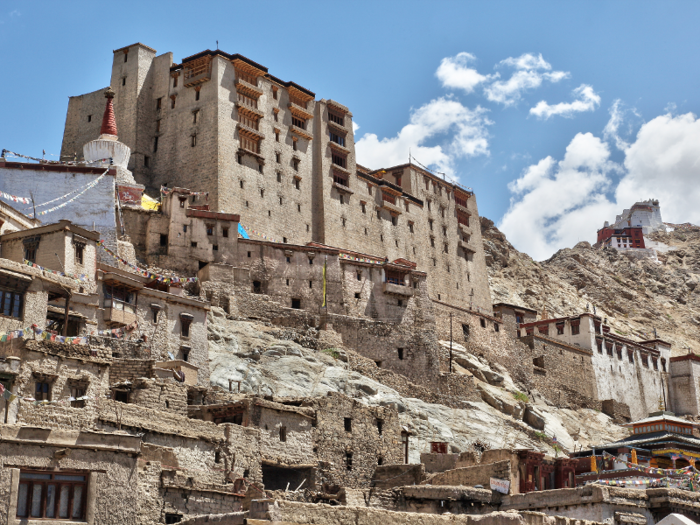
Leh Palace was constructed out of mud, wood, sand, and stone in 1553. At nine stories high, Leh Palace once housed members of the royal family on the upper floors and stables and storerooms on the lower floors. The palace was invaded in the 19th century and has been abandoned since.
It is now a tourist attraction managed by the Archaelogical Survey of India.
Jal Mahal — Jaipur, India
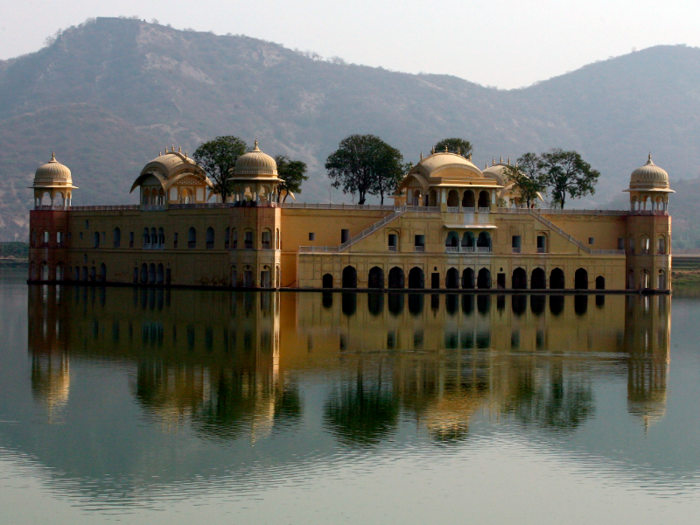
Jal Mahal is a "floating" palace in the middle of a man-made lake in Jaipur, India. In reality, four levels of the building are submerged underwater. It was originally built in the 16th century as a hunting lodge for the local royals. Droughts, dams, and the expansion of the lake all contributed to the palace's eventual sinking a century after it was built.
Today, there are rumored plans to convert the sunken palatial ruins into a restaurant.
Source: Atlas Obscura
The Palace of Sans Souci — Milot, Haiti
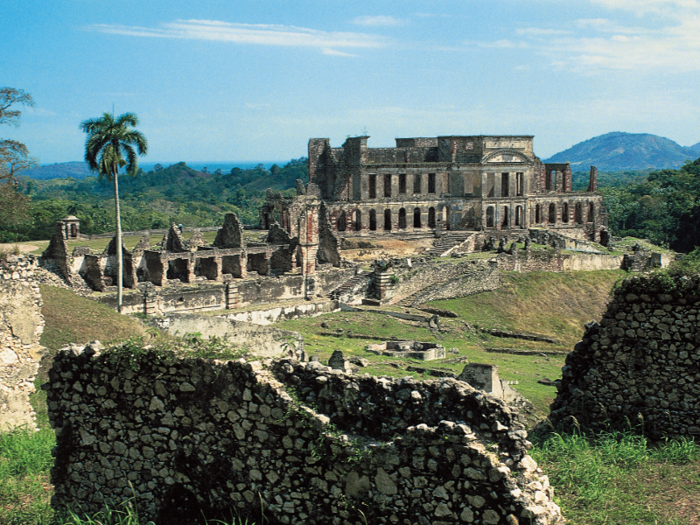
The Palace of Sans Souci is located in the mountains of northern Haiti and was completed in 1813. It was the home of King Henri Christophe until his death in 1820. It was known for being the "Versailles of the Caribbean." The palace was then irreparably damaged in an 1842 earthquake.
After standing empty for a century, it was designated a World Heritage Site in 1982.
Source: World Monuments Fund
Duckett's Grove — Carlow, Ireland
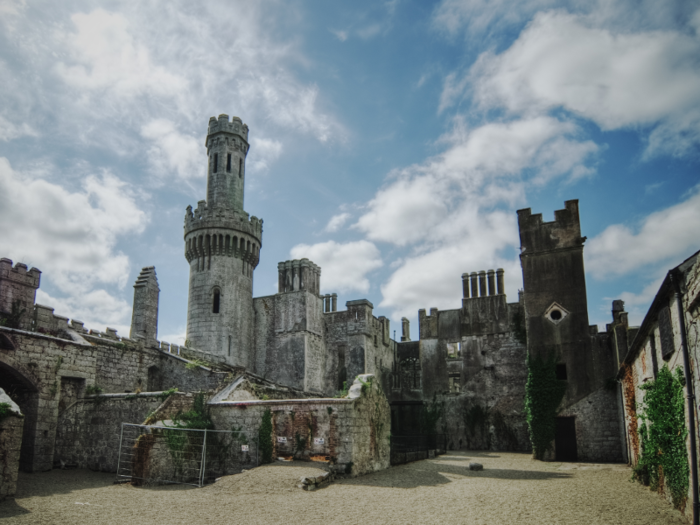
Duckett's Grove was built in the 1700s as part of the 12,000 acre estate belonging to the prominent Duckett family. The Gothic revival castle burned in a fire in 1933.
Souce: Carlow Tourism
Pidhirtsi Palace — Lviv, Ukraine
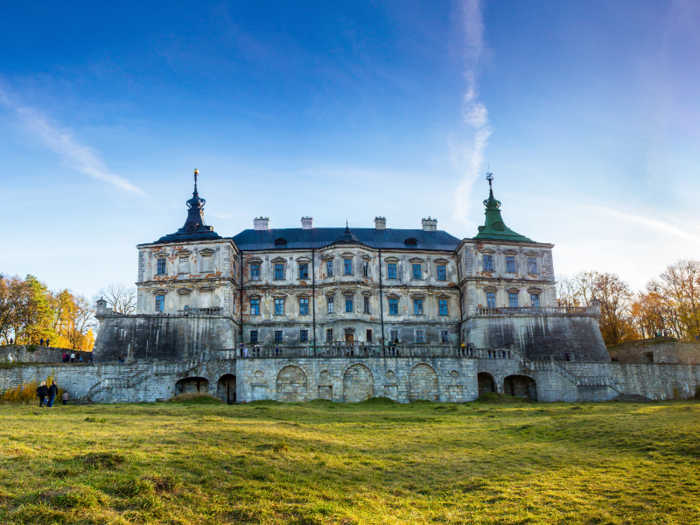
Pidhirtsi Palace was designed by Italian Andre dell'Aqua in the 17th century as a home for Polish military commanders. The palace was then converted to a hospital for tuberculosis patients during World War II. It was shortly thereafter abandoned.
It now serves as a tourist attraction.
Source: World Monuments Fund
Grand Hôtel de la Forêt — Corsica, France
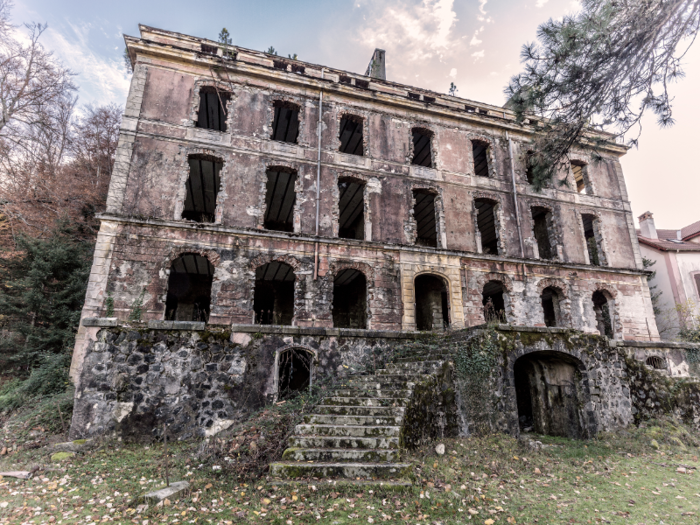
Built in 1893, the Grand Hotel was once a luxury hotel featuring a grand staircase and tennis courts. It was specifically designed to have a palatial feel.
After World War II, though, the hotel had a difficult time attracting guests. It closed and was effectively abandoned.
Source: Le Modalogue
Villa de Vecchi —Cortenova, Italy
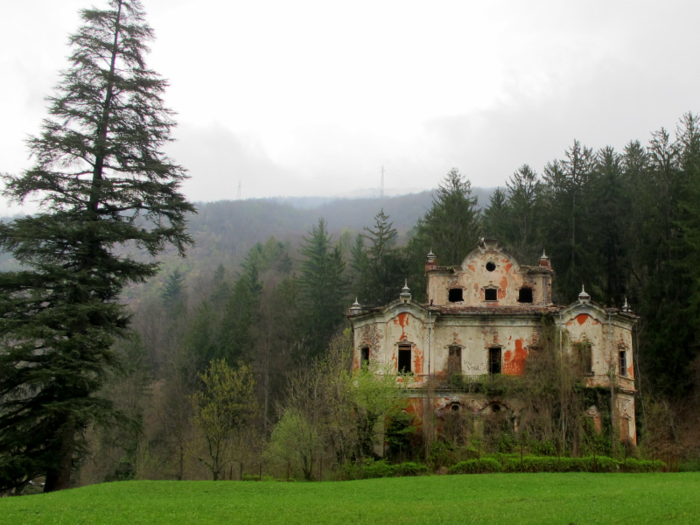
Villa de Vecchi is a mansion east of Lake Como that is rumored to be haunted. The house was built in the 1850s by the head of the Italian National Guard, Felix de Vecchi. As legend has it, he returned home on day to find his wife brutally murdered and his daughter missing. A lengthy search for his daughter turned up nothing and he died by suicide later that year. The villa was passed on to de Vecchi's brother, who lived there until World War II.
No prospective buyer was interested in the potentially haunted house. It was left permanently uninhabited by the 1960s.
Source: Atlas Obscura
Swannanoa Palace — Virginia, United States
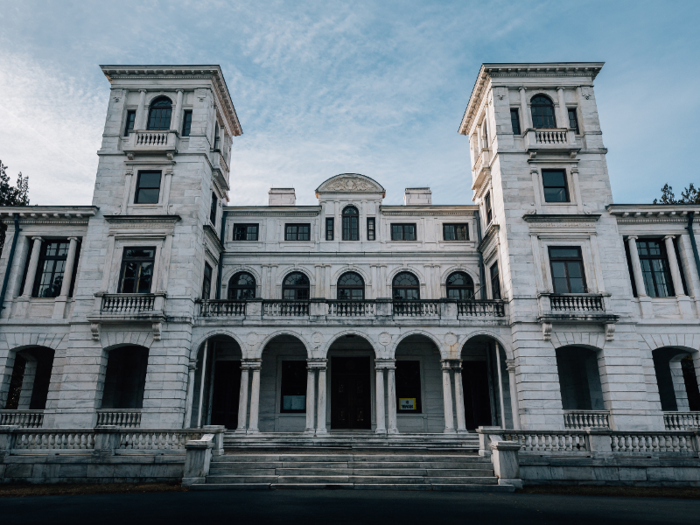
An American railroad executive, James H. Dooley, had this marble villa constructed in 1912 as a replica of the Villa de Medici in Rome. It took 300 artisans to complete and included a 4,000-piece Tiffany stained glass window.
After the Dooleys died in the 1920s, the villa was converted into a country club. It was officially abandoned in the 1980s and then turned into a historical site.
Today, Swannanoa Palace hosts weddings and weekly tours.
Source: Virginia Tourism
Sammezzano Castle — Leccio, Italy
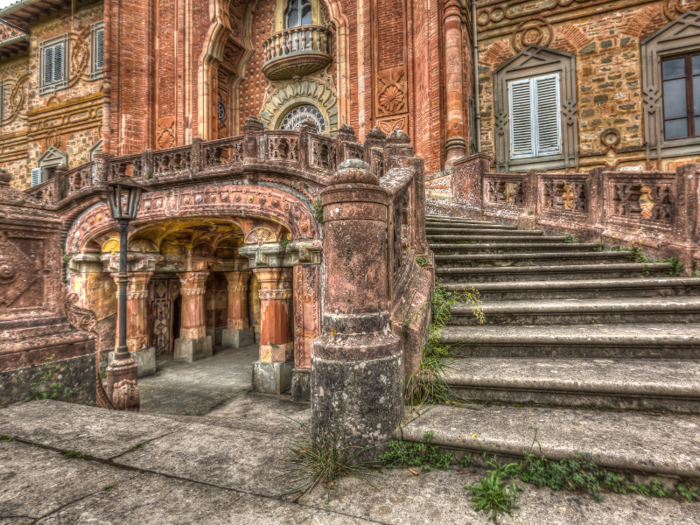
There is a 365-room abandoned palace atop a hill just south of Florence, Italy, that was built in 1605 by Spanish nobility. It has seen several iterations: At one point, it was owned by the famed Medici family, and later, after World War II, it was even used as a luxury hotel.
Sammezzano Castle has been closed and effectively abandoned since the 1990s.
Source: Visit Tuscany
Gbadolite — Nsele, Democratic Republic of the Congo
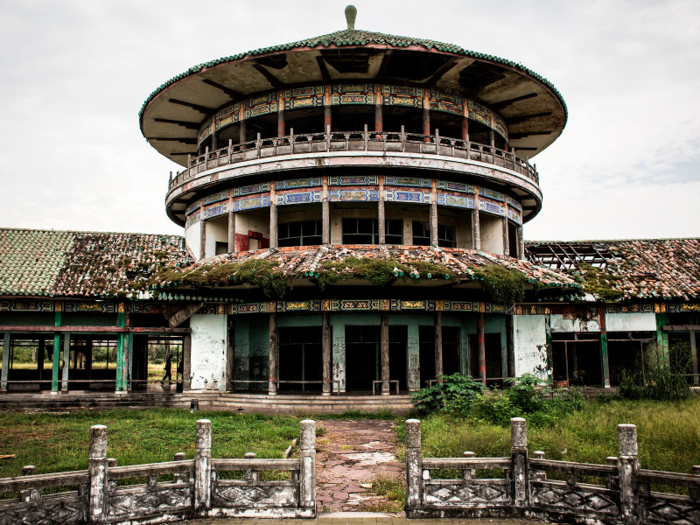
Gbadolite, once a small village, was turned into the "Versailles of the Jungle" by former journalist Mobutu Sese Seko, who seized power in the Democratic Republic of the Congo in 1965, renamed the country Zaire, and established himself the president. The estate included a night club, a hotel, and an international airport in addition to the residence of dictator Mobutu Sese Seko. After a military overthrow, he abandoned the palace and fled to Morocco in 1997. He died three months later of prostate cancer.
The derelict palace is reportedly now tended to by his former supporters and their families.
Source: The Independent, Atlas Obscura
Popular Right Now
Popular Keywords
Advertisement